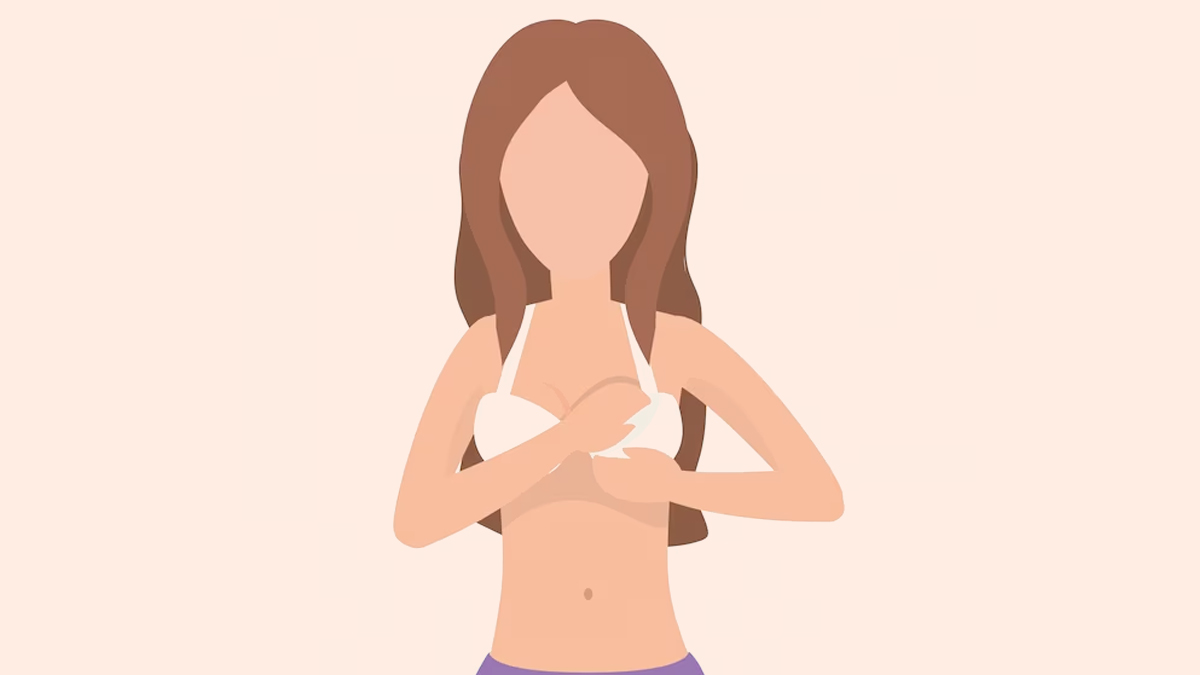
Nipple discharge might surprise you if you are experiencing it before conceiving. This phenomenon can raise questions and concerns, but to understand the reasons behind nipple discharge before pregnancy can help ease worries and guide individuals in seeking appropriate medical advice.
Table of Content:-
“It is important to highlight that nipple discharge, especially if chronic, bloody, or linked with other symptoms such as breast lumps or changes, should be evaluated by a healthcare practitioner,” said Dr Krutika Ramdin, Consultant-Obstetrics and Gynaecology, SRV Hospitals, Goregaon.
Hormonal Fluctuations
According to Dr Ramdin, one of the primary reasons for nipple discharge before pregnancy is hormonal fluctuations. Hormones play a significant role in the functioning of the mammary glands, and changes in hormone levels can lead to the release of fluid from the nipples. This is particularly common during the menstrual cycle when oestrogen and progesterone levels vary.
Also read: Balancing Parenthood And Breast Cancer: Expert Explains Strategies For Success
According to a study published in the journal BJR Open, more than 80% of females have nipple discharge at some point in their lives. After breast discomfort and palpable lump, it is the third most prevalent breast symptom that necessitates medical attention.

Medications and Birth Control
Certain medications, including hormonal birth control methods, can influence hormone levels in the body. Some women may notice nipple discharge as a side effect of these medications. It's essential to consult with a healthcare professional if you have concerns about the medications you are taking.
Even if you are not pregnant or breastfeeding, nipple discharge is frequent during the reproductive years.
Stimulation of Nipples
Nipple stimulation can lead to discharge even in the absence of pregnancy. Sexual activity, friction from clothing, or excessive touching of the breasts can cause the mammary glands to produce fluid. This type of discharge is typically clear or slightly milky and is not a cause for major concern.
Also read: Protein: What Is The Daily Protein Requirement and Top Food Sources
Infections or Inflammation
Infections or inflammation of the breast tissue can result in nipple discharge. Conditions such as mastitis or ductal ectasia may cause fluid to be expelled from the nipples. It's crucial to seek medical attention if you experience pain, redness, or swelling along with nipple discharge.
Fibrocystic Breast Changes
Fibrocystic breast changes, a common condition in many women, can lead to lumpy or nodular breast tissue. This condition can also cause nipple discharge. The discharge is typically non-bloody and can vary in colour.
Galactorrhea
Galactorrhea is a condition characterised by the secretion of breast milk in the absence of pregnancy or breastfeeding. This can be caused by an overproduction of the hormone prolactin, often associated with conditions affecting the pituitary gland. If persistent, galactorrhea should be evaluated by a healthcare provider.
Polycystic Ovary Syndrome (PCOS)
PCOS is a hormonal disorder that can affect various aspects of a woman's reproductive health. Hormonal imbalances associated with PCOS may lead to nipple discharge.
When to Seek Medical Advice
While many instances of nipple discharge before pregnancy are harmless, it's crucial to pay attention to certain signs that may warrant medical attention:
Pain or Discomfort
Persistent pain, tenderness, or discomfort in the breasts, especially accompanied by discharge, should be addressed by a healthcare professional.
Changes in Breast Appearance
Any changes in the appearance of the breasts, such as lumps or skin changes, should be brought to the attention of a doctor.
There are a number of reasons that cause nipple discharge without pregnancy , the most of which are harmless. It is, nevertheless, important to monitor changes in breast health and seek medical guidance if any problems occur. Breast self-exams on a regular basis and open contact with healthcare experts help to maintain breast health and general well-being.
Also watch this video
Read Next
Calcium Deficiency In Lactating Mothers: Expert Lists Symptoms, Prevention, And Management Tips
How we keep this article up to date:
We work with experts and keep a close eye on the latest in health and wellness. Whenever there is a new research or helpful information, we update our articles with accurate and useful advice.
Current Version